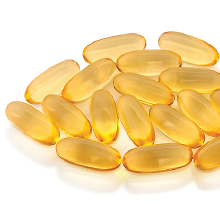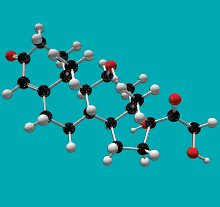Combining Topiramate With Cognitive Therapy May Reduce Gambling Behaviors
Despite the prevalence of gambling disorder, no pharmacological treatment has been approved to treat the disorder. A study published in the Journal of Gambling Studies now suggests that combining topiramate—a medication known to reduce cravings in eating and alcohol disorders—with cognitive therapy may help people with gambling disorder.
A total of 30 adults seeking outpatient treatment for gambling disorder were randomly assigned to receive either topiramate (flexible dosage tapered over the first eight weeks) or placebo over a 12-week period, along with four sessions of cognitive-restructuring therapy.
Topiramate proved statistically superior to placebo in reducing gambling cravings, time and money spent gambling, cognitive distortions related to gambling, and social adjustment. However, there were no effects on impulsivity or depression.
“We believe that this response could be due to synergistic interaction between topiramate and the cognitive intervention,” the study authors wrote.
De Brito A, De Almeida Pinto M, Bronstein G, et al. Topiramate Combined With Cognitive Restructuring for the Treatment of Gambling Disorder: A Two-Center, Randomized, Double-Blind Clinical Trial.
J Gambl Stud. June 2, 2016. [Epub ahead of print]
Vitamin D May Reduce Antipsychotic-Induced Hyperglycemia
Vitamin D may decrease the risk of hyperglycemia associated with atypical antipsychotics, according to a study in Scientific Reports.
For the report, researchers at Kyoto University explored the FDA Adverse Event Reporting System (FAERS) system to see if they could determine an effective drug combination to lower the occurrence of antipsychotic-induced hyperglycemia. They found that the prevalence of antipsychotic-induced diabetes was lower if the patients were also taking pregabalin, lamotrigine, or vitamin D, with the vitamin D having the strongest protective effect. (The authors noted that this finding was intriguing, as vitamin D intake on its own is not associated with a lower risk of diabetes.)
Next, the researchers tested the effectiveness of vitamin D in a mouse model of antipsychotic-induced glucose intolerance. They found that mice administered quetiapine that were fed a vitamin D-supplemented diet had significantly lower levels of blood glucose and insulin than mice on a control diet. Further molecular screening found that vitamin D could prevent quetiapine from decreasing the levels of an enzyme called PI3K in skeletal muscle.
“Databases like FAERS aren’t just for making drug regulations; they have so much potential for side-effect relief using pre-existing drugs,” said study author Shuji Kaneko, Ph.D., in a press release. “There’s a lot we can hope for from reverse translational research like this.”
Nagashima T, Shirakawa H, Nakagawa T, Kaneko S. Prevention of Antipsychotic-Induced Hyperglycaemia by Vitamin D: A Data Mining Prediction Followed by Experimental Exploration of the Molecular Mechanism.
Sci Rep. 2016; 6:26375.
People With History of Abuse May Be More Likely to Develop Dissociative Identity Disorder
A study published in Acta Psychiatrica Scandinavica has concluded that people with dissociative identity disorder (DID)—also known as multiple personality disorder—may be more likely than others to have experienced trauma early in life. Further, people with DID did not appear to be more prone to fantasy than those with posttraumatic stress disorder (PTSD) or healthy controls.
This work, one of the first to jointly test the trauma and fantasy hypotheses of DID, involved an assessment of 65 women, including those diagnosed with DID, PTSD, and healthy controls.
All the participants were given questionnaires that measured experiences related to trauma and fantastical thinking, as well as the potential effects of other malingering psychiatric symptoms.
The researchers found that women with DID had the highest trauma-related scores, followed by PTSD patients. Women with DID were not found to be more suggestible or fantasy prone, and they did not generate more false memories compared with the other groups.
“We hope these insights into the causes and nature of DID will inform, among others, clinicians and forensic experts regarding differences between simulated and genuine DID,” lead study author Simone Reinders, Ph.D., of King’s College London said in a press release. “Ultimately this would lead to faster diagnosis and treatment for patients and greater recognition of DID as a mental disorder.”
Vissia E, Giesen M, Chalavi S, et al. Is it Trauma- or Fantasy-Based? Comparing Dissociative Identity Disorder, Posttraumatic Stress Disorder, Simulators, and Controls.
Acta Psychiatr Scand. May 25, 2016. [Epub ahead of print]
Lower Cortisol Awakening Response Found to Occur After First-Episode Psychosis
People with first-episode psychosis and schizophrenia appear to have a lower cortisol awakening response (CAR)—the increase in cortisol release after waking up—compared with those at risk of psychosis and healthy controls, according to a review in Neuroscience and Biobehavioral Reviews.
Studies related to CAR’s link with psychosis have produced conflicting results, so researchers at James Cook University in Australia and colleagues carried out a meta-analysis of 11 clinical studies, including 879 patients across the schizophrenia spectrum (high-risk individuals, patients with first-episode psychosis, and patients with schizophrenia).
Patients with or at-risk for psychosis had a blunted CAR compared with healthy controls (about 42 percent lower waking increase). However, a subsequent subgroup analysis showed that reduced CAR was found only in patients with schizophrenia or first-episode psychosis (both with about a 55 percent decrease), whereas at-risk individuals had a similar CAR as controls.
“These distinctive alterations of hypothalamic-pituitary-adrenal axis function may have important implications for CAR as a marker for transition risk,” the authors noted.
Berger M, Kraeuter A, Romanik D, et al. Cortisol Awakening Response in Patients With Psychosis: Systematic Review and Meta-Analysis.
Neurosci Biobehav Rev. 2016; 68:157-166.
Exposure to Chemo Early in Life May Alter Executive Function
Higher exposure to the chemotherapy drug methotrexate appears to be associated with long-term executive dysfunction in survivors of childhood acute lymphoblastic leukemia, according to a study published in the Journal of Clinical Oncology.
Researchers at St. Jude Children’s Research Hospital recruited over 200 pediatric patients, who were at least five years post-diagnosis and had been treated with chemotherapy, to perform a series of cognitive and neuroimaging tests. The researchers then compared pharmacokinetic assays collected during therapy with neurocognitive and brain imaging outcomes.
While overall intelligence of the survivors was within the normal range, measures of executive function, processing speed, and memory were lower in survivors than population means. Higher plasma methotrexate was also associated with neurological changes associated with executive function, such as thicker cortices in dorsolateral prefrontal brain regions.
“With five-year survival rates for pediatric ALL [acute lymphoblastic leukemia] approaching 95 percent, researchers are focused on better understanding and reducing the neurotoxicity patients still experience during and sometimes long after treatment,” said lead study author Kevin Krull, Ph.D., in a statement. “It remains a relatively common problem even in the contemporary treatment era of chemotherapy only.” ■
Krull K, Cheung Y, Liu W, et al. Chemotherapy Pharmacodynamics and Neuroimaging and Neurocognitive Outcomes in Long-Term Survivors of Childhood Acute Lymphoblastic Leukemia.
J Clin Oncol. June 6, 2016 [Epub ahead of print]




